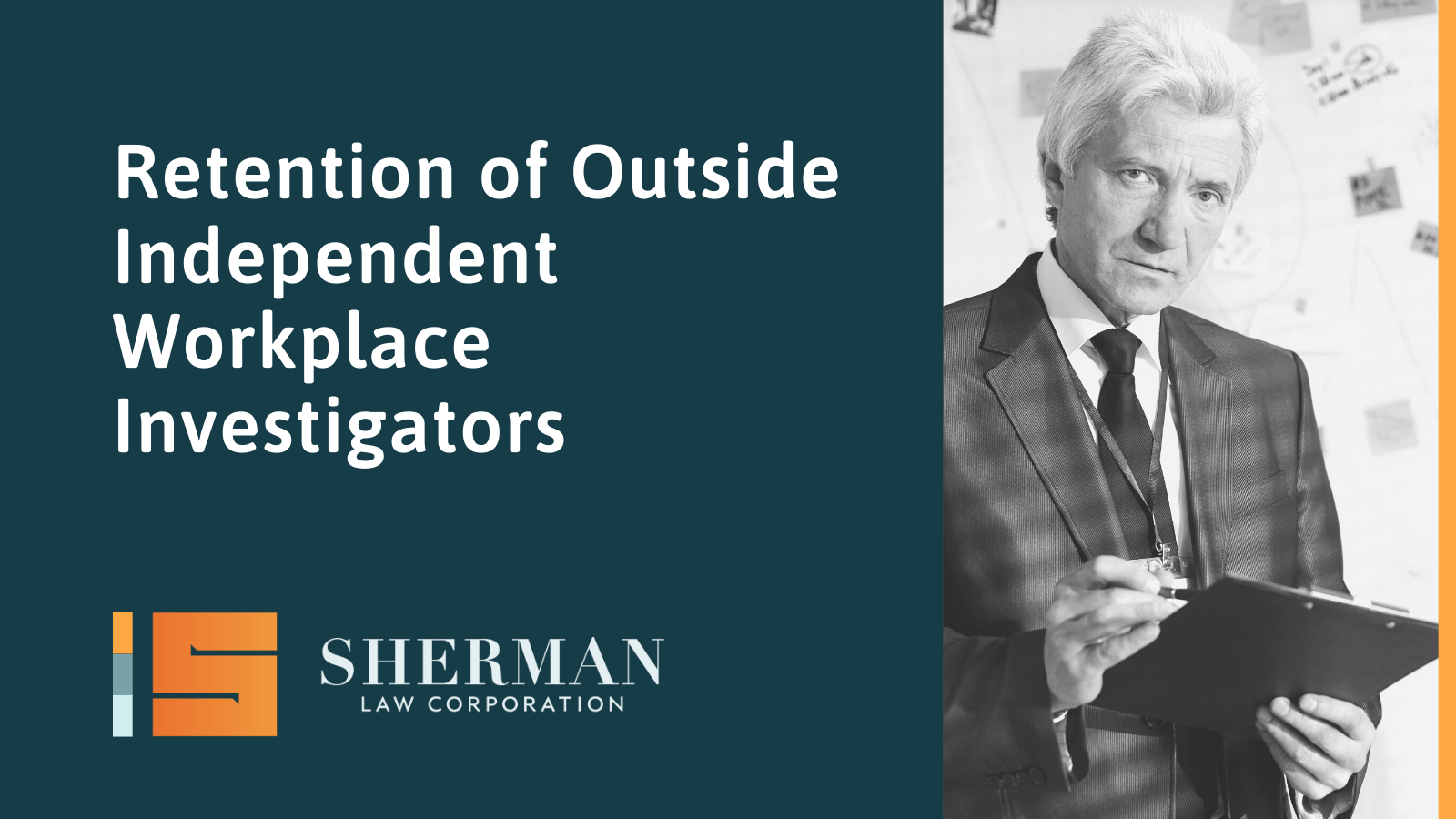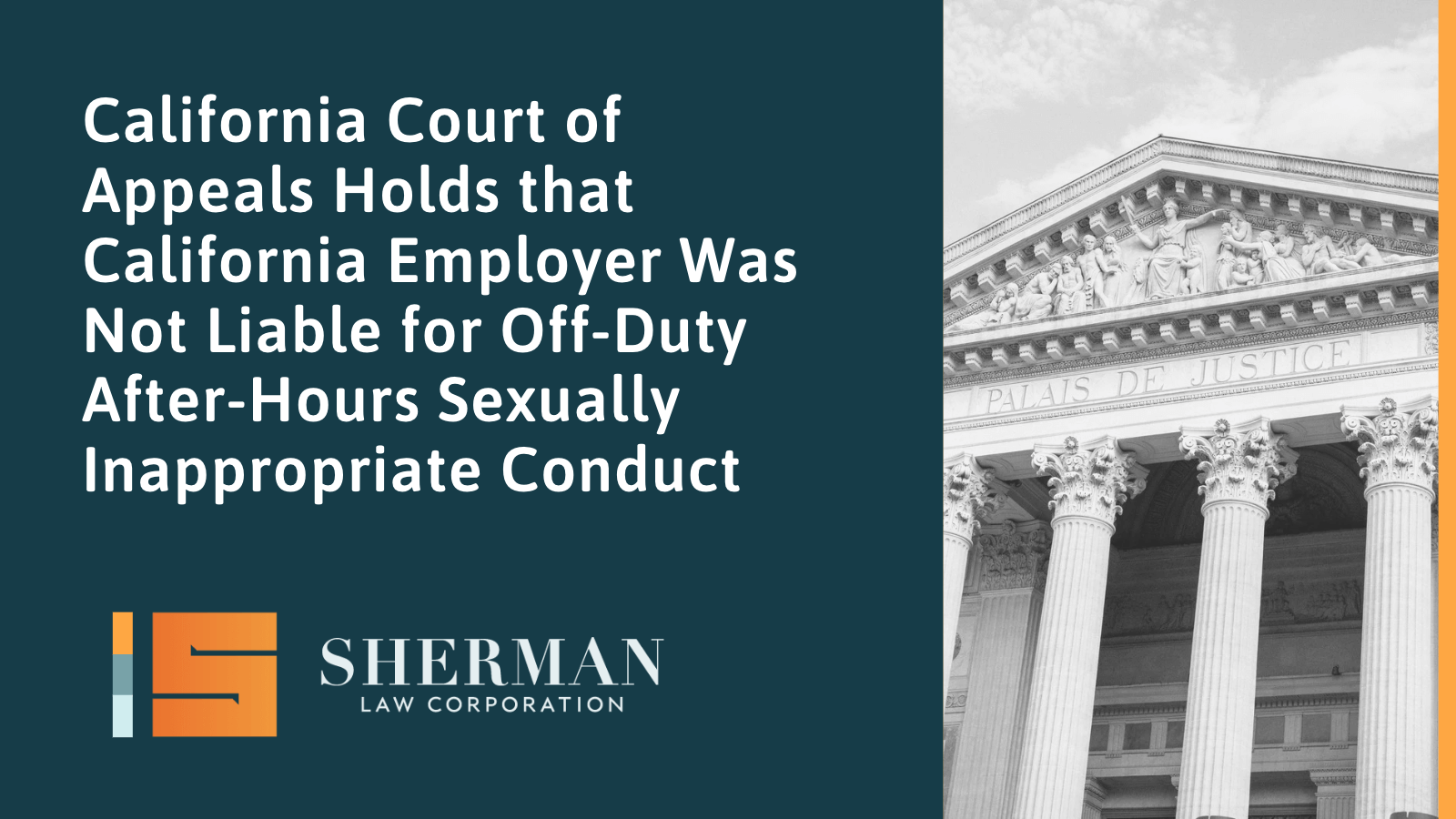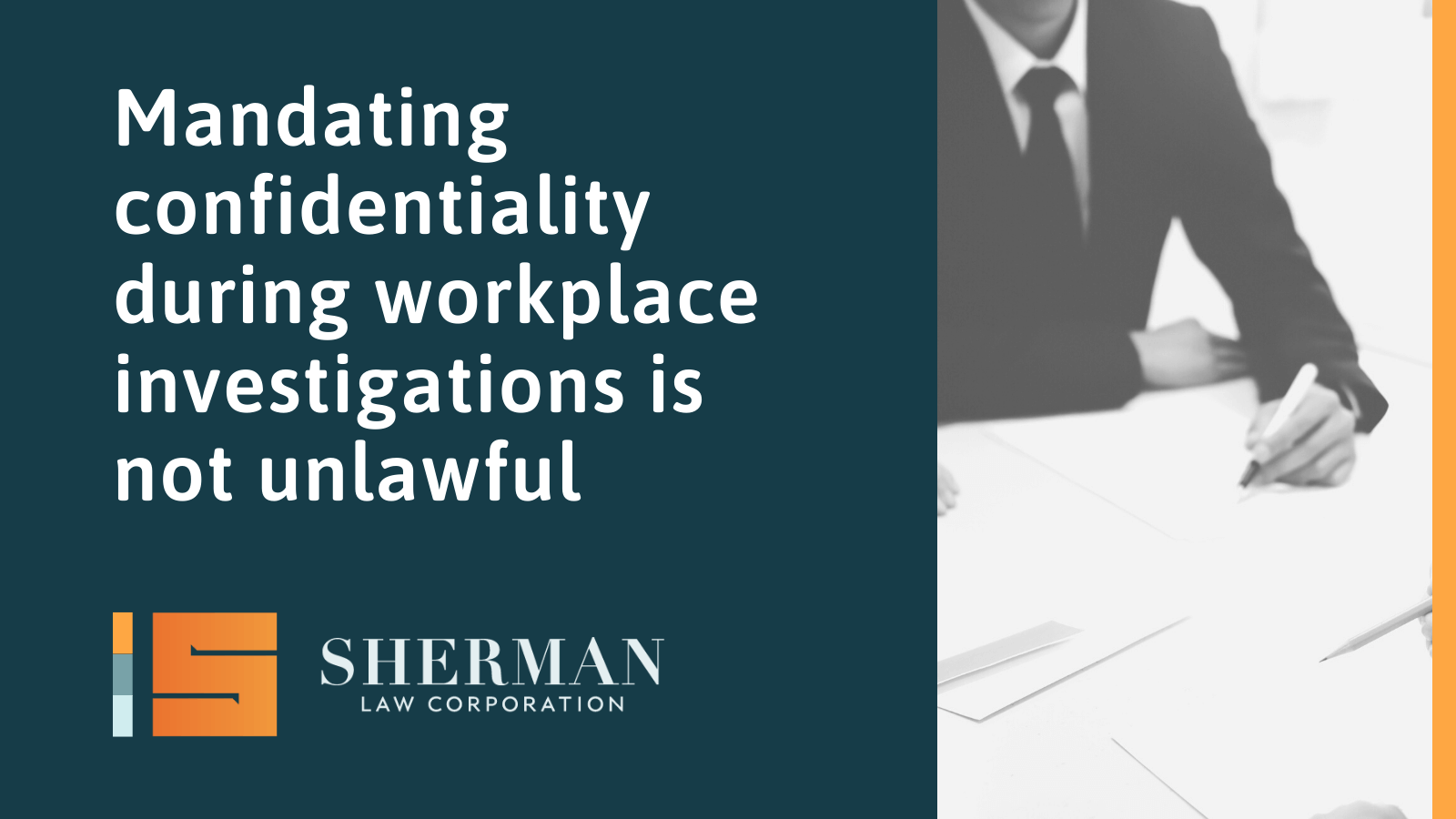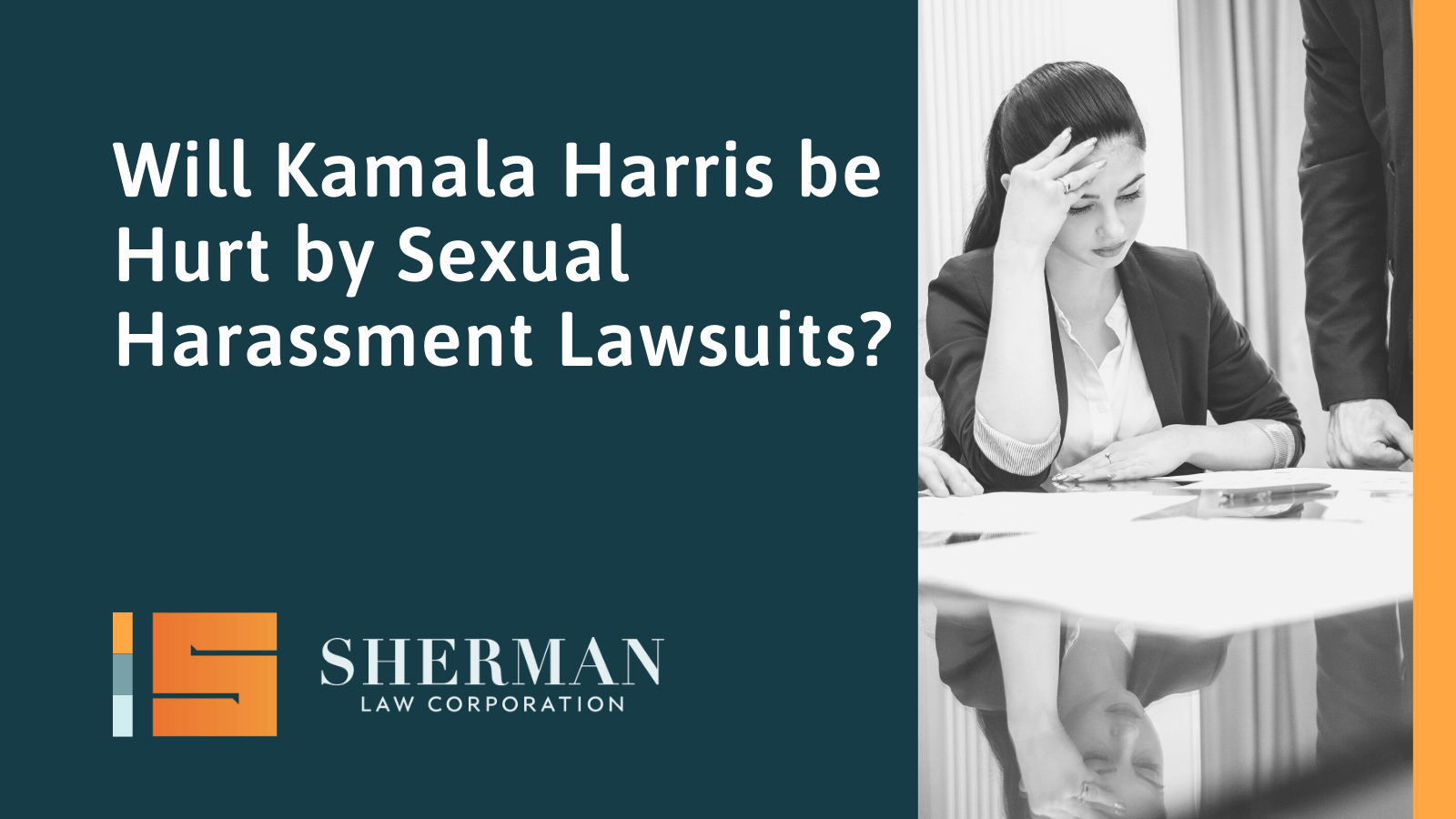
We are often asked under what circumstances California employers should retain an independent outside investigator to conduct an investigation if internal human resources personnel can perform the investigation. Like all answers in law, it depends.
Internal Investigations By Employees Are Too Biased
Internal experienced human resource personnel must fully understand the variety and nature of the investigation at issue, including, the legal elements to prove the claims and defenses. The internal employee must not only have the skill set to conduct the type of investigation involved, but, if litigation follows, testify as a competent, unbiased, qualified investigator. This means that the investigator must be able to withstand rigorous cross-examination by experienced employment counsel. Even if the internal employee is experienced, to the extent that the documentation is not bulletproof, it will be subject to rigorous attack. Where evidence in litigation disputes the findings of the investigation, explicit or implicit pressure to protect the organization (for ex, when the investigator is in the same chain of command as the accused) by the internal investigator, even if untrue, may convince a jury that the internal investigator is biased in favor of his/her employer.
In addition, any ongoing relationship dynamics given the level or position of the employee being investigated, witnesses or others involved with the internal employee put the investigation at risk and significantly weigh in favor of retaining independent counsel. Familiarity with guidelines/laws governing legal issues that may arise, such as, surveillance, unlawfully recording confidential communications, invasion of privacy, retaliation/defamation complaints, use of confidential non-public company information, as well as, understanding the standards applicable to proper preservation and collection of all potentially relevant social media, electronically stored information on all devices also may subject the internal investigator to attack if litigation follows.
Even if it is determined the internal investigator is the proper person to conduct the investigation, whether the investigator has the time and resources to conduct a timely, thorough and fair investigation is important. Delays due to limited resources or incomplete documentation can have a negative impact on the investigation process. If the investigation includes harassment, discrmination, or retaliation allegations, the law requires prompt and thorough investigation such that time is truly of the essence.
External Investigators Are Most Effective
When external investigators are retained, careful consideration must be raised as to who is directing the investigation, and will it be subject to privilege? Who will define the scope of the investigation and treatment of complaints outside the scope of the investigation. Is the investigator permitted to do what is required? Is the investigator given access to information, records and critical relevant data that will allow the investigator to authenticate the evidence? Will the investigator appear to be independent and credible?
The most important ethical dilemma exists when there is pressure, implicit or explicit, to influence the finding of an investigation. Internal investigators are most often attacked for lack of impartiality and objectivity given their roles in the organization. To the extent that the investigator knows some of the parties, is aware of previous unrelated issues, is accused of breaching confidentiality, and/or displays a vested interest in the outcome at all, the investigation may create employer liability.
Further, the organizational culture, hierarchy, and politics, regardless of the size of the employer, can create ethical challenges for the internal investigator. Of particular concern to an in-house investigator is the potential impact the investigation will have on ongoing relationships with those involved in the investigation.
Lastly, retaining independent experienced employment counsel trained in workplace investigations in all cases of actual or threatened litigation is undoubtedly the best defense. The long and short of it is that if an investigation is being conducted in response to a lawyer letter or a lawsuit, retaining an experienced outside investigator should be a no-brainer for any employer.
Speak To An Experienced Workplace Investigator
We are often called in to serve as independent investigators by employers or their employment attorneys. Typically, an internal employee complaint is lodged and for a variety of reasons, the employer retains us to serve as an independent investigator to make factual findings. We conduct the investigation, report to the employer our factual findings, and serve as a witness should the matter proceed to litigation.




